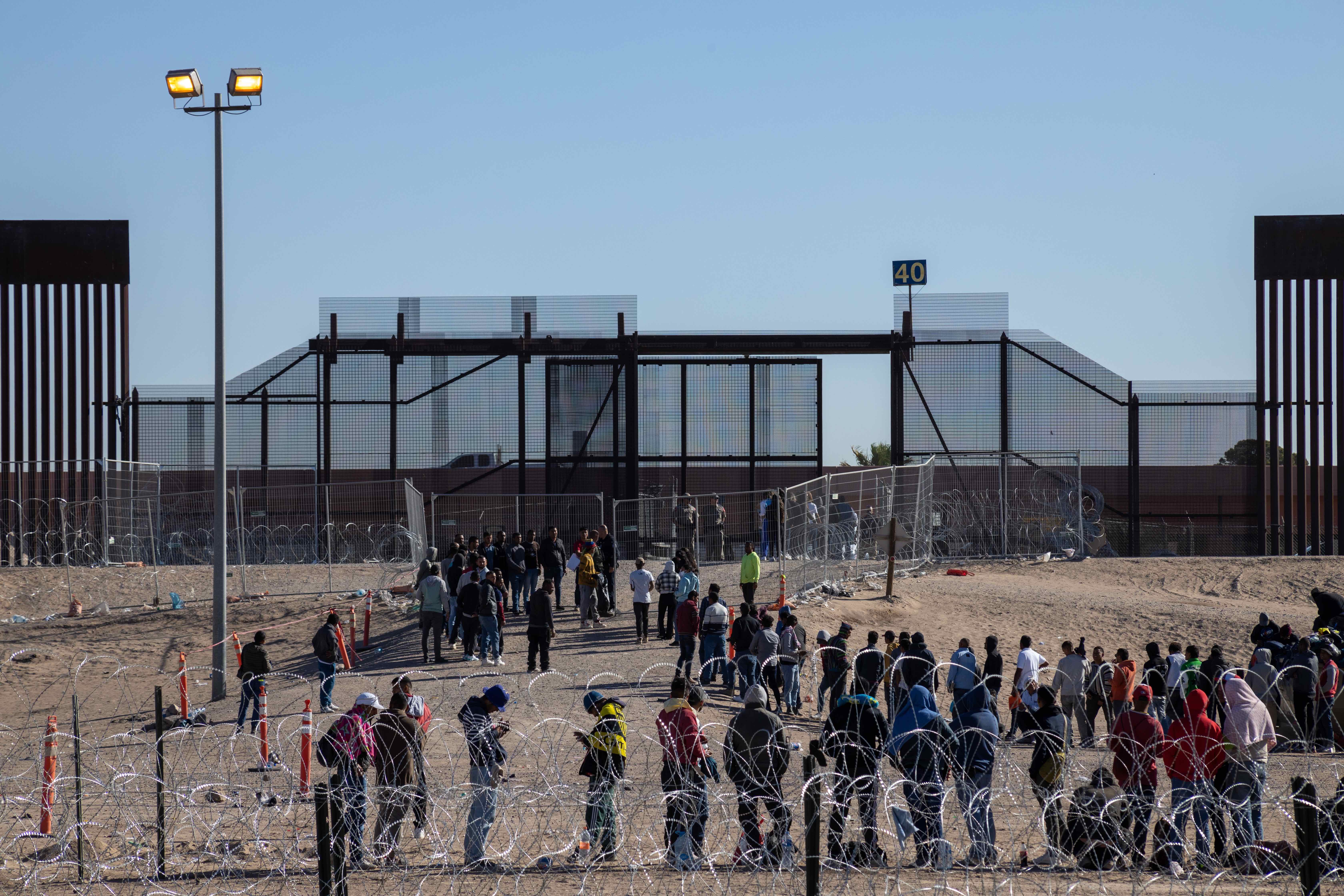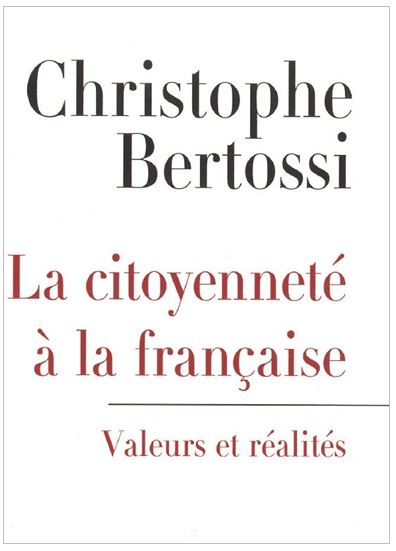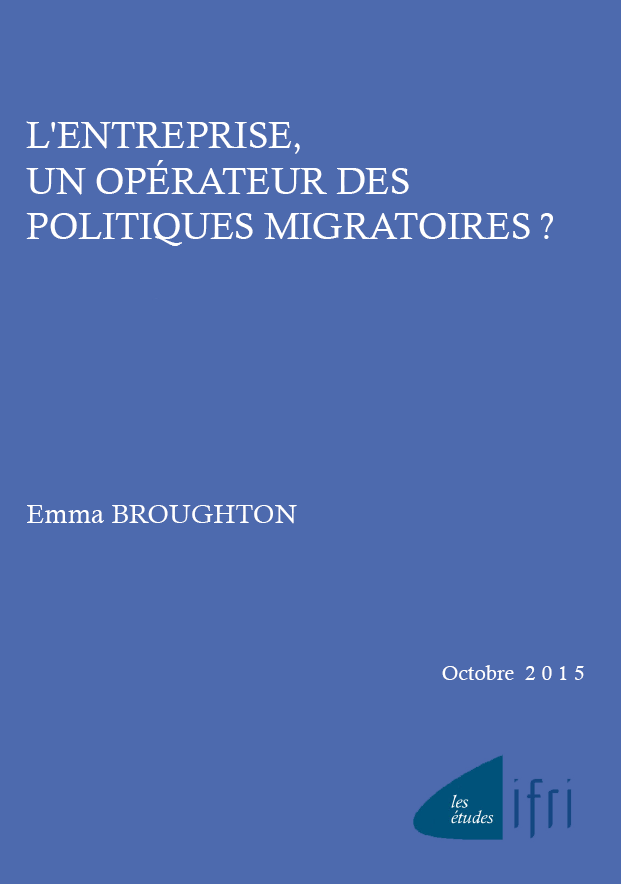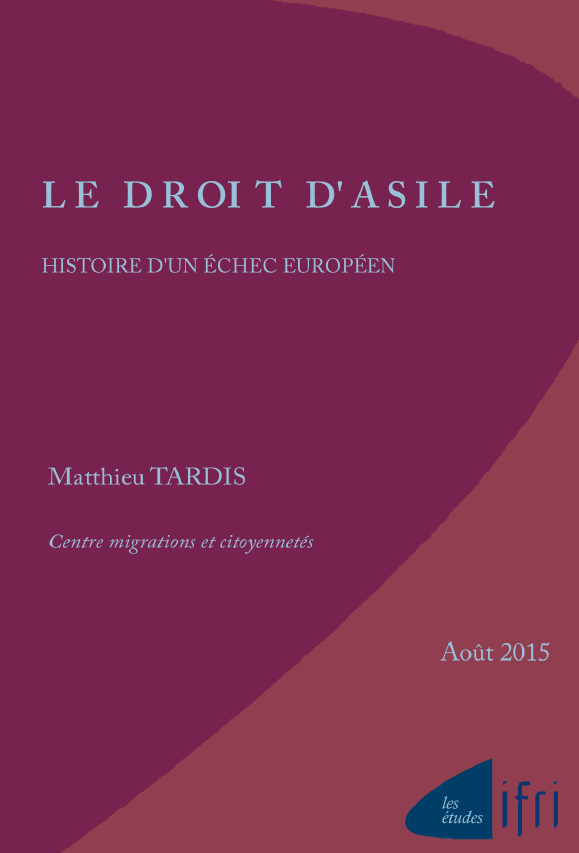Governance and Societies
States remain essential pillars of the international system, even if they are not the only players. Governance is a local, national and international issue.
Related Subjects

Migrations Between Mexico and the United States: More of the Same or a Headlong Rush?

As Trump prepares to tighten border controls with Mexico and carry out mass deportations of undocumented immigrants, Mexico is questioning the economic consequences of this migration policy and expects to have to negotiate the issue in connection with the tariffs imposed by the Trump administration.
Le monde selon Trump. Anticiper la nouvelle politique étrangère américaine
What will become of US foreign policy under Donald Trump? A selection of Ifri researchers has come together to offer their thoughts on this question. Our experts cover an array of topics through 14 contributions, ranging from the future Sino-American relations, through US engagement in the Middle East, to the prospects of a renewed transatlantic relationship. This analysis intends to help readers anticipate the outcomes of this election in order to facilitate decision-making.
Calais: French asylum system out of gas or failure of the European asylum policy?
The Calais’ camp demolition operation that has begun on October 24th 2016 is the most significant ever conducted. It follows numerous failed or aborted attempts to dismantle the shanty town and relocalize its inhabitants.

Citizenship in the French Tradition. Values and Realities
Citizenship is a major issue in public debates when it comes to immigration in France. Passionate talks illustrate the current disagreements on the meaning of value such as “laïcité”, “universalism”, “equality”, “community” and on the way these should apply in social and political life.
Understanding African Migrations
Movements of African people, being within their countries, on the continent or heading Europe, have numerous and ancient causes. The term “migration” covers a plurality of situations with many internal as well as international implications. Therefore, reasons to migrate deserve a careful analysis. One cannot tackle such a phenomenon through mere border control policies or their externalization, as the European Union seems inclined to do.
Refugees and European borders in the aftermath of Paris’ terror attacks
Just a day after the murderous attacks that killed 129 people and wounded about 350 more in Paris and St Denis on November 13th 2015, the word spread that a Syrian passport had been found near the body of one of the Stade de France’s attacker.

Are private companies agents in the implementation of French immigration policies?
Migration policies and rules applying to the recruitment of foreign workers impact HR and recruitment processes of French private companies. Administrative procedures are both complex and time consuming for they might require extra actions from those employees in charge of the recruitment process. The difficult access to clear information coupled with the impossibility to anticipate the outcome of recruitment procedures hinders economic objectives of firms and impacts their competitiveness.

Migratory Flows in the Mediterranean
The current crisis in the Mediterranean is a part of an unprecedented global migratory movement.

Accommodating Refugees: The Other European Crisis
The European Union (EU) has been trying to establish a common European asylum system for fifteen years. This project has been stalled by disagreements between states, each looking out for its own national interests.

Right of asylum: history of a European failure
Since the April 2015 shipwrecks in the Mediterranean, the right of asylum has become a priority in European talks. However, states have remained reluctant and sometimes hostile to measures of solidarity recommended by the European Commission. Such tensions raise the question of the European Union’s capacity to enforce a European asylum policy.

Calais Migrant Crisis: Refugees Risk Their Lives To Leaves France For UK
The distance between Dover, England, and Calais, France, is only 30 miles. For migrants and refugees trying to cross from France to Britain through a tunnel underneath the English Channel, however, that short distance represents a dangerous journey and a risk of deportation, grave injury and even death.
Support independent French research
Ifri, a foundation recognized as being of public utility, relies largely on private donors – companies and individuals – to guarantee its sustainability and intellectual independence. Through their funding, donors help maintain the Institute's position among the world's leading think tanks. By benefiting from an internationally recognized network and expertise, donors refine their understanding of geopolitical risk and its consequences on global politics and the economy. In 2024, Ifri will support more than 70 French and foreign companies and organizations.








